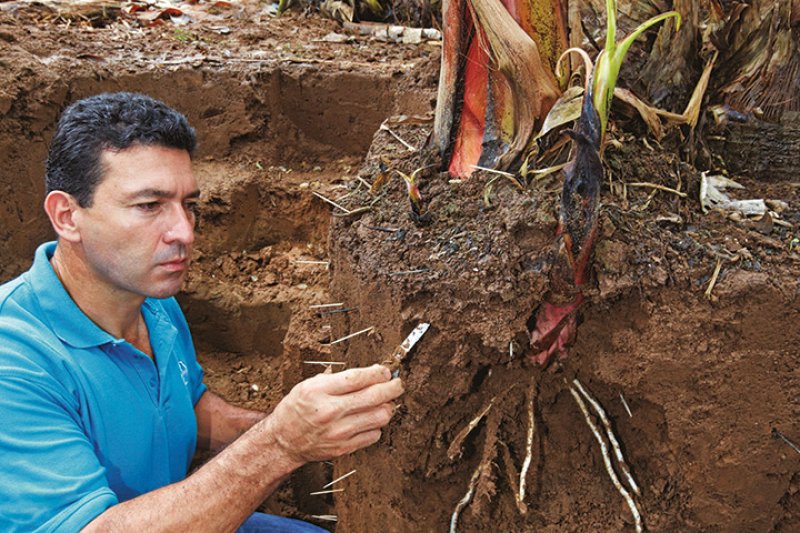Editor’s note: Davide Bulgarelli is a principal investigator at the University of Dundee in the UK. His research aims at understanding the structure, function, and host control of the microbiome thriving at the root-soil interface.
A better understanding of the molecular dialog between plants and their microbiota could revolutionize agriculture.
…
The interface between plant roots and soil—a zone called the rhizosphere—and the root itself are sites of colonization for microbes capable of enhancing mineral uptake by the plant, of both actively synthesizing and modulating the plant’s synthesis of chemical compounds called phytohormones that modulate plant growth and development, and of protecting plants from soil-derived pests and pathogens. For these reasons, scientists are looking to manipulate the microbes populating this belowground habitat to sustainably increase crop production.
…
Characterizing the plant microbiome and its function could be applied in an agricultural setting, better equipping our crops to grow in resource-poor environments and to fight off dangerous pathogens. Indeed, the private sector has begun to invest in this approach. One strategy many companies are pursuing is a form of plant probiotic, which consists of preparations of beneficial microbes to be mixed with seeds at sowing and again once the seedlings germinate. Another approach is to use plant breeding to select for varieties that have enhanced symbiosis with the microbiota.
Read full, original post: How Manipulating the Plant Microbiome Could Improve Agriculture































